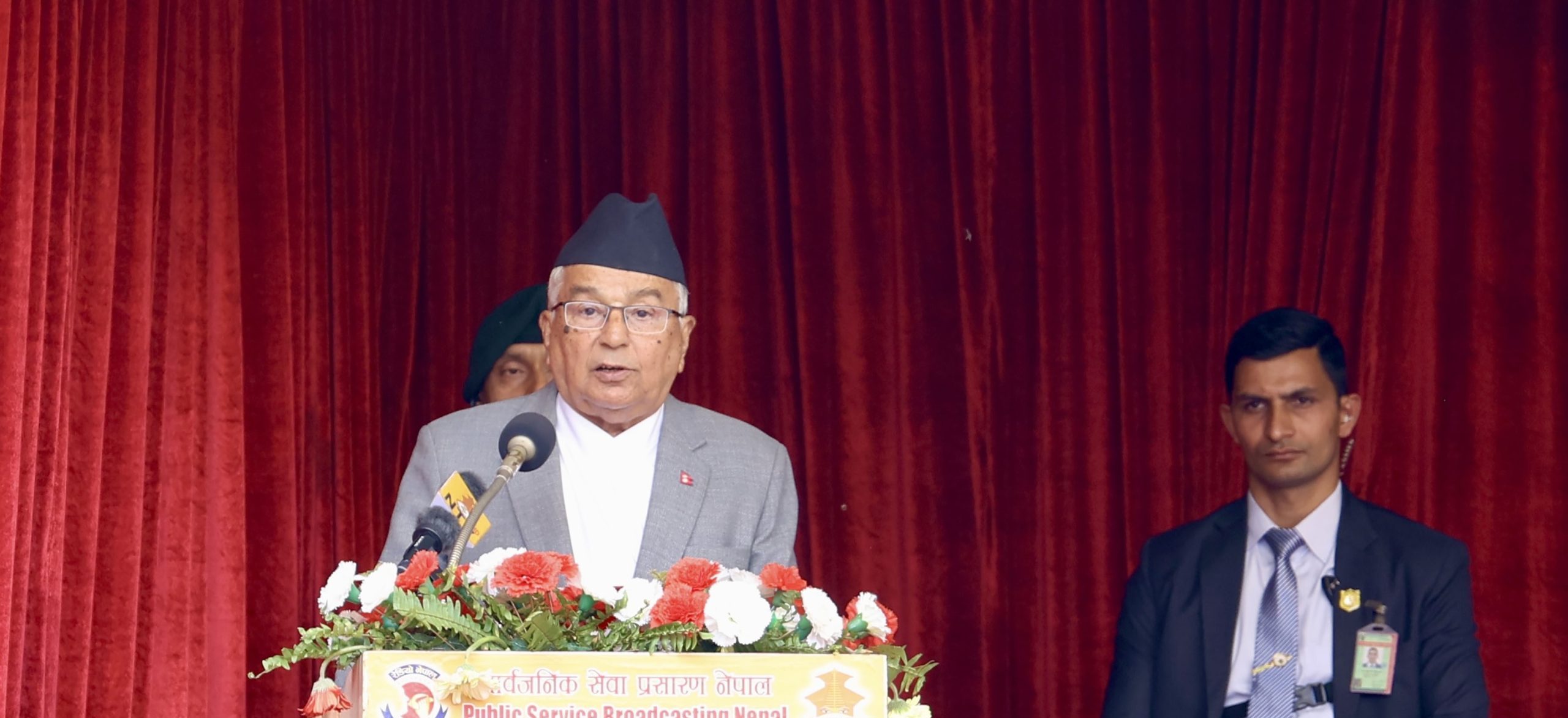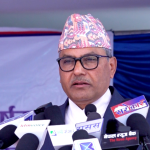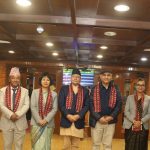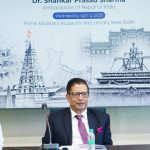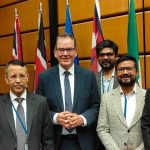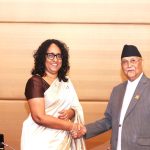Kathmandu: President Ramchandra Paudel has said that although the Constitution of Nepal has given unrestricted freedom to the citizens to express their views, it has prohibited activities like violence, arson, looting, and vandalism carried out in the name of freedom.
Addressing the Diamond Jubilee Celebration of the Public Service Broadcasting (PSB), Radio Nepal, on Wednesday, he said the people’s opinion is supreme in a democracy and no one should forget the provisions and the letter and spirit of the constitution.
‘The Constitution of Nepal has given untrammeled freedom to the citizens to express their views. Violence, arson, looting and vandalism in the name of freedom are always prohibited. I am confident that everyone will be serious to prevent such incidents from happening,’ said President Paudel.
He stated that no one should forget the democratic values and culture expected by the very constitution while exercising the rights guaranteed by it.
President Paudel said, ‘ The constitution made by the people themselves through long struggle, and sacrifice has given every citizen the right to express their dissent. This is the most beautiful aspect of the federal democratic republic. However, while exercising this right given by the Constitution, we also need to be responsible to the state, the law and the people.’
Noting that journalists and media had an important role to play in Nepal’s democratic movement, President Paudel reminded that full press freedom has been ensured in the constitution, realizing this important and serious responsibility of the media world.
President Paudel said he and his generation grew up listening to Radio Nepal and that he vividly recalls listening to the news and many educational, public awareness and entertainment programmes aired by Radio Nepal. Stating that the development and expansion of mass media has gained momentum in the country with the establishment of democracy,
He said Radio Nepal has made an important contribution to the protection and promotion of the inclusive character of the Nepali society to ensure the right to information of the citizens as provided by the constitution. He said that the goals set by the organization would be fulfilled by working to strengthen democracy based on pluralism, which protects the rights of all castes and languages, as its duty.
President Paudel said that the contribution of the media, including Radio Nepa,l during the 2015 earthquake, the corona epidemic and other disasters has proved that the media is the centre of trust of the common people during disasters.
The 2007 BS people’s revolution in Nepal and the birth of Radio Nepal were twin incidents in Nepal’s history, the President said, adding that Radio Nepal had significantly contributed to sending the messages of revolution to far-flung villages and the masses. Remembering Tarini Prasad Koirala, the founder of Radio Nepal, he said the democratic awareness and initiations of Koirala played a major role in bringing Radio Nepal to its present status.
‘Now, Radio Nepal has remained an independent and autonomous public broadcasting.’ said President Paudel. He added that he was hopeful that it would continue to educate the citizens while remaining accountable to the professional ethnics and the public and accepting global basic standards of public service broadcasting.
On the occasion, singers Ram Krishna Duwal and Nanda Krishna Joshi were honoured with the Radio Nepal Rastriya Srasta Samman (Honour)-2081 BS. They received the Honour from the Head of the State. The President also honoured the senior music composers as well.
During the ceremony marking the Diamond Jubilee of Radio Nepal, the Minister for Communications and Information Technology, Prithvi Subba Gurung, presented the ‘Long-Service Medal’ to 22 Radio Nepal employees who had completed 25 years of service.
Minister Gurung also launched Radio Nepal’s official publication, Jhankar, and the book 75 Years of Radio Nepal: 101 Artistes, authored by Radio Nepal’s former director, Tika Bhandari. As Nepal’s first broadcaster, Radio Nepal entered its 75th year of official broadcasting.
Following the restoration of democracy on Fagun 7, 2007 BS (February 18, 1951), it was officially established on April 2 of the same year. As a voice for inclusion, Radio Nepal now broadcasts news in 25 languages, airs programs in 24 languages, and offers services around the clock.
RSS


